Longtime readers of the Canyon Country Zephyr know that, in September of 2016, we were sued for defamation, along with four other defendants, by former Moab City Manager Rebecca Davidson and Tayo, Inc. owner Tara Smelt. That case was dismissed in February of 2017. Davidson and Smelt appealed the dismissal to the Utah Court of Appeals and, this September 12th, that court heard oral arguments from both sides’ lawyers. The three-judge panel included Justices Ryan Harris, Diana Hagen, and Mary Kate A. Toomey. Davidson and Smelt were represented by Attorney Gregory Stevens. Attorney Russell Fericks represented the Canyon Country Zephyr, former Moab County Councilman Chris Baird, and Kemmerer, Wyoming resident Connie McMillan. The following is a transcript of those oral arguments, copied to the best of our abilities from the Youtube recording of the proceedings…
Judge Harris: Good morning. Welcome to the Utah Court of Appeals. My mic is kind of loud. Welcome. We’re here today for oral argument. We have only one case on our docket this morning. It’s the case of Davidson vs Baird and others. We’ll turn to that in a moment. First let me just go over a couple of ground rules. Each side will have 15 minutes to present their argument. My timer in front of me says 11 minutes. (to Attorney Stevens) Does that mean that you’ve communicated that you look wish to reserve four for rebuttal? Okay. All right, fair enough. Each time you step to the microphone we’d really like it if you could state your name. I know who you are we all know who you are–you’re in the courtroom–but we’re recording this and also live-streaming it for those who might be interested in listening in and so it’s not always apparent to those listening who’s standing at the microphone. So please go ahead and identify yourself and, in that same vein, these microphones work really well if you’re within about a foot or so from the microphone but as soon as you get—well… So to preserve our record we’d really like it if you state it into the microphone. Okay and with that, unless there are any other questions we’ll turn the time over to the appellant for argument.
Stevens: Good morning, Your Honor. May it please the court, Greg Stevens here on behalf of the plaintiffs. The real issue, or the primary issues of the case is whether the district court decided material issues of fact. and I think it’s pretty clear that in deciding that the statements made by the appellees, that deciding that they were true or that they were matters of opinion that the district court judge did in fact decide issues of fact that are properly left to a jury. The statements that were false, by Ms. McMillan include the statement–and this is probably the easiest statement the judge shouldn’t have decided that’s true–is that Miss Davidson hired Miss Smelt and Tayo Inc in Kemmerer, Wyoming and gave a false reason for hiring the company to perform IT work. Continuing that statement, Miss McMillan claimed that that repeated itself in Moab when Miss Davidson hired Miss Smelt and Tayo Inc to perform IT work for substantially the same reason and a false reason in the City of Moab.
Judge Hagen : But isn’t the question not whether it was actually false but whether the the defendants knew it was false or were reckless as to whether it was false? And I’m wondering what the evidence is that created a disputed fact on that issue. My understanding is that by all appearances, they may have been wrong to say that she hired this company, but how would they have known that. What facts do you have that they acted recklessly as to the falsity of their statements?
Stevens: That wasn’t an issue addressed in the district court. The district court simply decided that the statements were true or matters of opinion. The judge didn’t reach the issue at all
Judge Harris: Well yes he did. He reached the Public Interest privilege issue which is actual malice which is goes to exactly the question judge Hagen raised.
Stevens: That’s fair enough on that. I understand that at that point as far as the the Public Interest Privilege. First, it doesn’t apply to Ms Smelt and it doesn’t apply to Tayo, Inc. They weren’t public entities or public people or entities. And as to Miss Davidson, the judge decided that they didn’t the actors didn’t act with actual malice. So the evidence of actual malice is–each of the defendants, each of the appellees, Mr. Baird made clear that he was angry with Miss Davidson for having fired two employees and so did Mr. Stiles. Miss McMillan resurrected old claims similar claims about what happened to Kemmerer that she was angry at miss Davidson for having terminated employees in Kemmerer, Wyoming.
Judge Hagen: But it can’t be enough for actual malice simply to show that the person who made the statement is angry at how a public official is discharging their official duties. Otherwise anyone who is incensed with how the people’s business was being handled would, not would be guilty, but would… that you would be able to show that they had actual malice. Doesn’t actual malice mean something different than them just being upset at the way the public official handled business?
Stevens: I think it is more than just being upset but the evidence of what they–the reason they did it–is enough to present to the jury an issue of fact about the motivation for doing it, at least I think in this case. They made absolutely clear that–the Mr. Baird and Mr. Stiles made absolutely clear that they were not just upset. That they, Mr. Stiles and Mr. Baird, both referred to what miss Davidson did in firing the two employees as cold and heartless–did that publicly. That’s the evidence that their motivation was malice. The question whether they actually had a malicious intent in making these statements I think is a question for the jury.
Judge Harris: Is there any evidence in the record beside your–beside your sort of inference of ill will that leads you to the conclusion that there was malice?
Stevens: Well there’s also what–
Judge Harris: In other words, let me just focus the question a little bit better. I think Judge Hagen is asking a good question when she points out that actual malice in the defamation context isn’t just about ill will. In fact it’s not really about ill-will at all. It’s about whether they knew the statements were false or had a reckless disregard for the statements falsity, regardless of whether they had ill will or not. Ill will may be some sort of indication of that. But my question is, other than the ill will evidence you’ve already talked to us about, what else do you have and what else can you point us to that’s in the record that indicates that they knew the statements were false or they had a reckless disregard for the statements falsity?
Stevens: I don’t think that, as far as the actual malice standard, that it requires that they knew that it was false. It is enough that they lacked a reasonable belief in the truth of their statement. And I think Mr. Baird, Mr. Stiles at least as to miss Davidson–the standard for Miss smelt and for Tayo Inc is really just negligence. For Mr. Baird, Mr. Stiles against Miss Davidson the standard is actual malice, but…
Judge Harris: So you concede that Miss Davidson’s a public figure right?
Stevens: Absolutely. Clearly, I think, Ms Smelt and Tayo, Inc are not. But the the claim, er, they didn’t know–at least I said let’s take that statement–Mr. Baird knew that they did not get engage in ethical violations, that there wasn’t a serious financial impropriety, which is what his statements were…
Judge Harris: Well how can you know that, right? I mean we can happen–let me throw out a hypothetical: there’s a lot of people right now that think our president violated the emoluments clause. Whether he did or not is something that a judge is going to decide or some court’s going to decide but hypothetically you could have an opinion about that that differs from whatever the governing body made and that would still be an opinion, right?
Stevens: You can have an opinion, but the law on defamation is, if your opinion either states or implies an assertion of fact that can be disproven, that that is actually…
Judge Harris: Okay, but that, a statement that Ms Davidson had a conflict of interest…
Stevens: And he knew that wasn’t true that that was made clear at a Council meeting that wasn’t true…
Judge Harris: But by what objective standards do we judge that?
Stevens: Well this is an easy one because I think we know that he knew that it was false. That the information was given to him at a city council meeting that, publicly also by the city attorney and the mayor, that in fact the relationship between Ms Smelt and Ms Davidson had been disclosed. This was public information
Judge Hagen: But, that it had been disclosed that doesn’t necessarily change whether he believed that there was a conflict of interest. It just means that the city had determined that there wasn’t any impropriety.
Judge Harris: Yeah, those are two different things, aren’t they?
Stevens: Well–
Judge Harris: The City can determine that there’s no impropriety or the state auditor can come in and do an audit and determine that there’s no impropriety but he could still think there’s a conflict of interest can’t he?
Stevens: Not when there’s no–I mean when you’re, when you’re making assertions that are devoid of reality, as the assertions by the defendant in this case, I don’t think that you can make that assertion. It’s, it becomes not an opinion. It becomes an opinion that implies a fact.
Judge Harris: Okay but let me just change my hypothetical. Not to get all political on you, but we have already congressional committees that have determined that there’s no problem with what the President did with regard to whatever Russian connections may have been, they’ve already made that determination. You’re saying that somebody who harbors the opinion to the contrary can be sued for defamation by our president, a public figure? I mean, don’t we have to have room in our public debate for people to have opinions about public figures that may differ from what even an official inquiry has has made?
Stevens: Sure, but these are not–the information he had weren’t the result of—well, in part it was the result of, both in part of was that we built up an official inquiry by the City Auditor, of which he was aware. But (indecipherable) Mr. Baird and Mr Stiles but, um. Yes, someone can have an opinion but when they go and they publish not only their opinion but assertions of fact–to claim, as to mr. Baird, there are serious financial improprieties, that they didn’t, they did, they should…
Judge Hagen: What if he just thinks the auditor’s conclusion is wrong?
Judge Harris: Right. That’s what I’m getting at.
Stevens: Right, he didn’t say that. I mean he didn’t say I disagree with the auditor. In fact later he acknowledged that that there had been no conflict of interest or there had been at least as to the rules as they applied because he made specific allegations that they had violated ethical rules applicable to miss Davidson. He made very specific claims that are demonstrably false.
Judge Hagen: But it doesn’t matter if they are demonstratively false after the fact, if the person did not act with knowledge that they were false or with reckless disregard as to whether they were false. And I’m still having trouble seeing what evidence you had that, before they made these statements, they either knew or recklessly disregarded the risk that these statements were false.
Stevens: One example, it was public information that the relationship was disclosed. The mayor said so. The city attorney said so. This was public. As to the claim that Miss Davidson had hired miss smelt and Tayo Inc it’s clear they acted with reckless disregard in that case. They had no idea that in fact Miss Stenta and the city, not miss Davidson, had hired Tayo–hired Mr. Pierson, and then that Tayo was formed after the fact.
Judge Hagen: Given the fact that she was the City Manager and had essentially hired the same people the city manager as she had in her last job as City Manager—couldn’t, wouldn’t that be just a reasonable inference? How could that be how could they be recklessly disregarding the falsity of that statement, given the circumstantial evidence, for lack of a better word?
Stevens: There was no circumstantial evidence. Miss Stenta didn’t perform IT work in Kemmerer. She was employed by the city. She didn’t perform IT work for Tayo. She–she wasn’t hired to do that. Mr. Pierson was hired to do that. So they made these statements that this conflict of interest occurred and that Miss Davidson, whether it’s Miss Stenta or Miss Davidson, awarded this contract to Tayo, but the fact is that that’s not what happened. So they made statements that they had no actual basis in fact for, that they had no reason to believe was actually true.
Judge Harris: I know you’re out of time but we’ve been peppering you with questions. So I have a couple more. So we’ll still give you your full time. Let me ask you about the procedural posture in which this case arises. This case was decided, if I have this right, based on a motion filed by the defendants that was a Motion for Judgment on the Pleadings or, in the alternative, for Summary Judgment, right? So–
Stevens: Right.
Judge Harris: As I understand that, this motion was filed before any discovery–
Stevens: Yes.
Judge Harris: –occurred but there were affidavits attached to both the motion and to the responses so I think the court treated it essentially as a Summary Judgment motion because the court considered the attachments to the briefs–
Stevens: Yes
Judge Harris: –is that, is that your understanding of how that occurred? And from what I could tell, neither side filed any sort of Rule 56–is it B now?–56D? motion asking for additional discovery or indicated to the court that they didn’t think the record was complete for adjudication on Summary Judgment and—and so I can infer from that that you’re comfortable with the state of the record.
Stevens: As to the motion for Summary Judgment, yes. Because the the judge’s decision and all the arguments of the district court focused solely on the statements made by the defendants/appellees. So,and we know what those statements were because they were public statements. So the question was whether those were true or matters of opinion. Those are the only arguments raised. It didn’t go or require discovery into, for example, as Judge Hagen pointed out, intent.
Judge Harris: Well that’s that’s kind of what I’m getting at. When I review other cases in this arena a lot of times people want to go do discovery into the type of investigation a reporter made before publishing a story so they can say, aha, you looked at these sources but you didn’t talk to these other obvious sources so it looks like you stuck your head in the sand, and that can give us some sort of something to go on—that maybe the reporter had a reckless disregard for the falsity of what he or she was publishing. But we don’t have any of that discovery in this case. In other words, you didn’t depose Mr. Stiles and ask him anything about his investigatory process, did you?
Stevens: No, the motion was filed very early in the case. I think their answers were filed and then the motion.
Judge Harris: Well that’s why I’m asking about 56D. You never came into the court and said, look, I don’t think this motion is right because I haven’t had a chance to depose Mr. Stiles.
Stevens: No, and that’s because the only issues raised in the motion had nothing to do with the intent of the parties or their reckless disregard or anything like that, that’s solely to do…
Judge Harris: I’m going to have to press you on that, though, because the motion was at least partially decided on actual malice, which goes to whether the folks who you’re accusing of defamation had a reckless disregard for the things–the falsity of the things they published.
Stevens: Right. I don’t disagree with that.
Judge Harris: Okay, well I’m gonna move on to another question so if you have anything else to add to that I’m happy to hear… Okay, is there any place in the record that that I can go to look to see where there’s a comprehensive list of the statements you allege are defamatory. I mean I can go through your brief and you mentioned some statements sort of, in different places in the brief, and I can go through and sort of add those up, but I didn’t see any sort of addendum that said, here, one through 12, or one through 42, or however many…these are the statements we think are defamatory.
Judge Toomey: And the brief couched it as, “For example.”
Judge Harris: Yeah, that’s my point.
Judge Toomey: Just makes you think, maybe there are a whole bunch more.
Judge Harris: Yeah, so I don’t know what–I guess I don’t have a really solid sort of target to shoot at here, so to speak. Can you point me to any place in the record where I might find that?
Stevens: Well that is what I tried to do in the brief and when I say “for example” it’s really going from one to the next to the next. Those are, the statements in the brief are the only statements that we’re referring to. So there is no addendum that anybody filed saying these are comprehensive of the statements. I can point you to the places in the record where those statements appear, but what we did was take out of the record which is…
Judge Toomey: So we’re not looking for something other than what you cited.
Stevens: Right.
Judge Harris: All right, I’m fresh out of questions. Okay, thank you for your patience, Mr. Stevens. Appreciate it. You’ll have your full time for rebuttal when you stand back up.
Thank You. Mr. Fericks?
Fericks: Thank you very much. If it please the court. It’s perhaps an interesting morning, when the publication of the Bob Woodward book comes out this morning—aggressive criticism of our president and the current administration with complete impunity—demonstrating the importance of free and open dialogue to a functioning democracy and the preservation of a free society. That’s what this case is about, is whether or not people can do that without fearing to be prosecuted or litigated into silence.
Judge Hagen: And I can certainly see that point with regard to Ms. Davidson but what about the assertion that Ms. Smelt and Tayo are not public figures?
Fericks: Let me get right to that. In the case of Jacob v. Bezzant, were judged by Justice Nehring talked about this public interest privilege. He defined that public interest privilege quite succinctly. Where there are legitimate issues with respect to the functioning of governmental bodies, officials for public institutions or with respect to matters involving the expenditure of public funds.
Judge Hagen: So by virtue of the contracts, that brings Tayo in this now.
Fericks: By virtue of the contract and by virtue of the fact that this involves the functioning of the city in its IT security and administration. Now keep in mind that in the Jacob v Bezzant case, Jacob, the plaintiff, he was a private citizen who had engaged in this conflict with the reporting of an election notes. And he was included because he participated in the election process. So it was a public function and the public interest applies.
Judge Harris: And that seems to make some intuitive sense–that we would apply the Public Interest privilege to the public procurement context. And statements made about the propriety of a public contract would fall within that privilege. That makes some intuitive sense, and I hear what you’re saying, but I don’t see any cases cited in your brief that specifically say that. That a statement made about a contractor, about the propriety of that contractor’s contract with the government, is something that is subject to sort of public interest analysis. Can you cite me to a case that says that?
Fericks: I cannot. I can all only tell you that it’s inferred as being appropriate in the Jacob case and then subsequently in the the Logan construction case. Logan Construction was again–privilege is brought to bear with private parties and so, no, your honor case all I can say is that’s the approach.
Judge Hagen: You would think that would would come up occasionally. But, on the other hand, I can see that if someone is criticizing a government official for playing fast and loose with contracting regulations or something like that, that the statements would be directed at that public official, not really the contractor, and I’m wondering if that’s what’s the case here. I’m not sure that the defamatory meaning goes necessarily to Miss Smelt and Tayo, because, wasn’t the import that Miss Davidson as a public official was doing something wrong?
Fericks: Exactly right. There were actually no defamatory statements made about Ms. Smelt or about Tayo. They were just simply parties that were involved as collateral elements of an allegation that there was improper contracting or perhaps a conflict of interest. But Miss Smelt can’t have a conflict of interest. She’s a private citizen. The conflict goes to Miss Davidson as the City Manager. And so you’re exactly right. There were actually no allegations that Miss smelt did something wrong as a citizen of either Kemmerer or Moab, or that Tayo had either. They did services. They got paid. That was the underlying grist of the concerns by the defendants. But how do you get that concern out without mentioning what’s happened? It doesn’t necessarily constitute defamation to include the names of the parties that are involved if there’s no criticism being directed.
Judge Hagen: Can I ask you to respond to the point that Mr. Stevens made about the failure to disclose a conflict of interest? So that’s one of the statements that’s challenged. In an op-ed, right, Baird said that Davidson failed to disclose a conflict of interest. And I’m trying to get this straight in my mind in terms of chronology. Mr. Stevens indicated that at a city council meeting it was disclosed to the public that in fact she had disclosed the conflict of interest. Did that occur beforehand–before that statement was made? And, if so, does that make it not only false but for Mr. Baird to have acted with reckless disregard as to whether it was false?
Fericks: Well let me answer that, but I’m going to go in reverse order, okay? The standard for Mr. Baird is not reckless disregard. The standard of his misconduct would be if he acted with malice under the public interest principle or if he acted with actual malice under the public official privilege.
Judge Harris: Okay what’s the difference between those two? Both seem the same to me. Was gonna ask you that very question. Malice, under the Public Interest privilege, when I look at the standard for that, it seems to me to be exactly the same as the constitutional Actual Malice standard that’s applied in the Public Figure context.
Fericks: Your Honor, I’m sharing with you the text of the opinions. I have wrestled with that. My law review approch would be to suggest Actual Malice involves an intention to damage a specific person, with no other ulterior purpose or public benefit. I would have to develop that in that context. I don’t know that there is a controlling decision that tells us. It’s the language that Judge Nehring used and that is used in New York Times v Sullivan. but it’s really kind of a double, very…
Judge Harris: Well the language used in New York Times v Sullivan and its progeny define Actual Malice not in terms of the state of mind that the defendant has toward the public official. In other words, it doesn’t—it’s not really a question of ill-will. It defines actual malice solely in terms of, does he know the statement’s false or does he at least have a reckless—is he reckless about the statement’s falsity. That’s how it defines Actual Malice in the constitutional context.
Fericks: And that’s why I suggest that judge Nehring’s decision in Jacob vs Bezzant is really quite helpful. Judge Nehring is an excellent jurist and does an excellent job parsing out these issues and suggesting that the public interest privilege involves a higher level other than just simply failing to say the right thing. You have to have malice. It can’t just be a failure to know the right answer.
Judge Hagen: But isn’t malice defined as either knowing it’s false and saying it anyway or having reckless disregard for whether it’s false? And I agree with you that it’s not that you just, you don’t know for sure it’s true. It has to, it’s higher than that. It’s reckless disregard. But isn’t that the definition of malice? Though knowing it’s false or with reckless disregard of its falsity? You cite us to Russell on page 18 of your brief and it says, “To show malice plaintiffs must, quote, show that the defendants published the alleged defamatory material with knowledge that it was false or with reckless disregard of whether it was false,” and I thought that was the standard that we were applying.
Fericks: Okay, well I’m sure that I can put my finger on where the development of that
Judge Hagen: And I’m looking at page 18 of your brief.
Judge Harris: By the way that’s exactly the same way New York Times v. Sullivan defines actual malice in the Constitutional context. And again–
Fericks: Again, into Bezzant. in the Bezzant case, Justice Nehring says, “to defeat the conditional public interest privilege the plaintiff asserting defamation against a defendant must prove that the defendant’s statements were made with ill-will or were excessively published or defendant did not reasonably believe his statements were true.” So that was Judge Nehring’s articulation of the higher standards of privilege
Judge Harris: But why is that standard better for you than the constitutional actual malice standard? Why do you even want to get into ill-will? He’s got some evidence of ill-will. Can’t you prevail here without, with just leaving ill-will aside?
Fericks: Okay, I will then. I think the critical thing for this court is to realize that when you’re reviewing a motion for dismissal of defamation type allegations there is a gatekeeping function well recognized. You don’t give the deference to the non-moving party. You don’t give inferences
Judge Harris: But that’s true only in some contexts, right? I mean, isn’t Mr. Stevens right about that, in his reply brief, I think that’s right, with regard to the issue of whether a statement is susceptible to a defamatory interpretation. I think our O’Connor vs Burningham case is clear about that. But let’s take a different hypothetical. Let’s say there’s a question of fact about whether the statement was ever uttered. We don’t have that dispute–in this case we don’t—but in some cases we do, and that’s a situation where we wouldn’t give any sort of heightened deference to a trial court’s decision. That’s just a flat-out question of fact about whether he said it or whether he didn’t.
Fericks: I suspect so, but Mr. Stevens is wrong in this regard. It’s not only whether the statement is susceptible to a interpretation–a defamatory interpretation. It’s also whether or not the statement is substantially correct.
Judge Hagen: I don’t see that in the Connors opinion. I mean it seems to me that that opinion is limited to a discussion of defamatory meaning. Only I’m not sure how you’re reading that to get to falsity. Oh I’m sorry, I was at O’Connor’s.
Fericks: And that’s exactly what judge Anderson did in the lower court. He looked at both whether or not the statements were substantially factually correct under the rohini standard and then whether or not the statements could be taken as defamatory. The transcript of the hearing is actually quite illustrative in that regard. Mr. Stevens says that he didn’t conduct that defamatory interpretation or analysis. But he certainly did.
“I’ve tried as best I can with the amount of time that I feel is appropriate for me to devote to this case, to determine where one of the defendants may have made some statement that is so much a statement of fact that I can’t perceive it as an opinion. Or where they have, they have moved beyond what is appropriate to say in commenting about what the public does and I find nothing that fits that category.”
He goes on: “ just either express their opinion or make fair comment about what public officials and people dealing with the public officials are doing. So I think this involves not only the kind of public comment that is allowed by law but which we must permit in a society if we’re to have a free society. Now I know that this means that sometimes people say nasty things about you. People have said nasty things about me, and it’s a matter of opinion whether they’re true or not, but you know, that, in my view goes with the territory.”
This is judge Anderson reviewing the quality of the statements and whether or not they can be interpreted as defamatory. He concludes, “I find there are no genuine issues of fact about whether they were false statements or not fair comment.” And he says the same thing in his Order or he says, in either instance,–whether it’s factually true or a matter of opinion–the statements at issue are not actionable as a matter of law, indicating that he has conducted the necessary review, as a gatekeeper. Which this court, by the way, under the standard of review, is entitled to do the same thing. And also to apply the conclusion in Cox v. Hatch that you’re entitled to come up with your own independent standards of a decision if it affirms the lower court. And, in this particular case, the finding that Miss Smelt and Tayo are caught up in the public interest privilege would be one of those types of things you could easily decide. But then you go to determine that, if there’s no defamation, there’s no longer an act that would constitute interference with economic interest and there is therefore no egregious or excessive conduct. In fact, there has been actually no allegation of an intent to interfere with anybody’s economic interest. There’s no allegation of such a thing and there’s no evidence. Your honors, thank you very much for your time.
Judge Hagen: I’m sorry let me–but before you sit down, if I may. Let me bring you back to my earlier question. I was quite persuaded by your statement that there was no way the defendants would have known the information about who hired who and all of that beforehand, but I’m still concerned about Mr. Stevens’ statement that, in a city council meeting, they said it was disclosed–conflict of interest was disclosed–and then, was it after that that Mr. Baird stated in that op-ed piece that she failed to disclose it?
Fericks: The first decision to hire Pierson, essentially Tayo, with Ms Smelt, the sequence was—Ms Davidson became the City Manager in May, or in April. In May there was this security issue and they had to hire Mr. Pearson on an emergency basis. That was private. And they kept it private because they were concerned about letting the public know that there were vulnerabilities. And then later, when they hired Tayo to conduct ongoing maintenance, they did that in an Executive Session.
Judge Hagen: But when when was the statement made at the City Council that Miss Davidson had disclosed the potential conflict of interest? What date was that and was that in an executive session or was that public?
Fericks: Well, your honor, I’m sorry. I can’t put my finger on that. I don’t have that detail right now. I will say this–that the idea–this is something that Judge Anderson raised. He said, the fact that the FBI has determined not to prosecute Hillary Clinton means we can’t–people can’t fairly talk about the need to prosecute Hillary Clinton anymore? And it’s the same thing with that statement by the City Council. Just the fact that the City Council makes some pronouncement whether before or after doesn’t foreclose the right to have an opinion.
Judge Hagen: But that does seem slightly different to me. I mean, I’m with you on that. You can have an opinion as to whether it’s an inappropriate conflict of interest. But where the statement was that she didn’t disclose it, it seems like possibly they could have been saying, as a matter of fact, yes, she did disclose it. That could be a fact not a matter of opinion.
Fericks: Okay, and in this regard, Mr. Pierson was hired in May. In June, Tayo was formed and was hired in an executive session. And it was after that that Ms Davidson then informed the City Council that Ms Smelt had come down from Kemmerer. and she was concerned about what if she had a conflict of interest. Now the conflict of interest that was disclosed was after the decision was made–
Judge Hagen: Oh, I see
Fericks:–to hire and contract with those people and get them involved in the process.
Judge Hagen: So you’re saying that it still could be a statement of opinion that she didn’t disclose it at the appropriate time or, um, right. I understand what you’re saying.
Judge Harris: Thank You, Mr. Fericks. Mr. Stevens. Rebuttal?
Stevens: So let me address you, probably four or five points. One is as to the public interest privilege, there is no decision that says, merely by being a public contractor, you become a public figure.
Judge Harris: But do you have a decision the other way? I mean they’re just–neither side cited any cases to us on this point, right?
Stevens: Yes. What they–the key principle that the appellees are ignoring is that you inject yourself into the public discourse to influence the decision. That’s why that’s what controls the results.
Judge Harris: The Weyman decision wasn’t a public procurement case that was–
Stevens: Oh no, no.
Judge Harris: Well I’m at what I’m asking you is, you’re saying, well, he doesn’t have a case and he’s admitted he doesn’t have a case to demonstrate that public procurement context brings the contractor into the Public Figure regime.
Stevens: Right.
Judge Harris: But you don’t have a case the other way, that says just, a public contractor is a private party even though they’ve contracted with the Government.
Stevens: No but the principles applied in every single one of the cases where the Public Interest privilege is considered goes to the issue of whether they injected themself into the public discourse to influence a decision. A public contractor just contracts, just works for the city. They’re not injecting themselves into anything for the purpose of influencing anything and that’s what each of those decisions turned on.
Judge Hagen: But how are the statements defamatory as to Ms Smelt and Tayo? It seems like, to give another national political example, if someone’s criticizing the fact that Vice President Cheney has connections with Blackwater, and that that was underhanded, the way that they became the contractor, I’m not sure if that’s a defamatory statement as to Blackwater? Or if that’s just attacking the public official?
Stevens: In this case nearly every single one of the statements made actually refers to Ms Smelt and does so in a way that states or implies that she is a party to a financial impropriety of not bidding on a contract, a conflict of interest. That does meet the definition of a defamatory statement because it impeaches her integrity.
Judge Hagen: In my example, what would you say if the criticism was that Vice President Cheney had a relationship with Blackwater and it was underhanded the way that they got the contract in Iraq? Is that defamatory as to Blackwater, just because they mentioned Blackwater? Blackwater happened to be the contractor that was involved in that controversy?
Stevens: I think so, yes. And I think the facts here actually go a bit farther, and the statements actually do impugn the character of Smelt specifically–is that she was party to this in Kemmerer, she’s party to this now. They’ve given a false reason both of, and in this case it wasn’t even Miss Smelt who was involved in the IT work at all. But the claim is that they gave a false reason to get this this work. As far as the, you were talking about the Malice standard, I think the the Russell case makes clear at least the law that we should be applying here is that ill-will does equate with malice under the Supreme Court’s analysis here. It may not have been addressed the New York Times v. Sullivan, but I think in the Russell case, that is one of the ways to show actual malice under the Public Interest privilege. I think, as far as the the Connors case and the difference between whether something is true or false or substantially true versus susceptible to defamatory meaning, I think it’s clear that the only way or the only point at which a plaintiff is not entitled to the inferences whether it’s susceptible or the defamatory meaning. Finally, the point raised the last–that was just discussed last—about when the information became known that Mr. Baird absolutely knew that the relationship was disclosed and in fact the mayor publicly disclosed in the record at 8/10 and 8/26. So Mr. Baird actually knew (indecipherable)
Judge Hagen: Do you happen to have the date that occurred?
Stevens: I don’t.
Judge Hagen: That the record cites…
Stevens: Give me half an hour.
Judge Hagen: No, no worries. No worries. We can look that up. Thank you.
Judge Harris: Thank you to Mr. Stevens. Thank you, Mr. Fericks. I appreciate the arguments made today. They’ve been interesting. This is an interesting case. We’re gonna take this matter under advisement as we usually do and we’ll issue a decision as soon as we’re able to do so. We appreciate you coming down and helping us understand this case a little better today.
Thank you. Court’s in recess.
You can listen to the proceeding via Youtube, below:

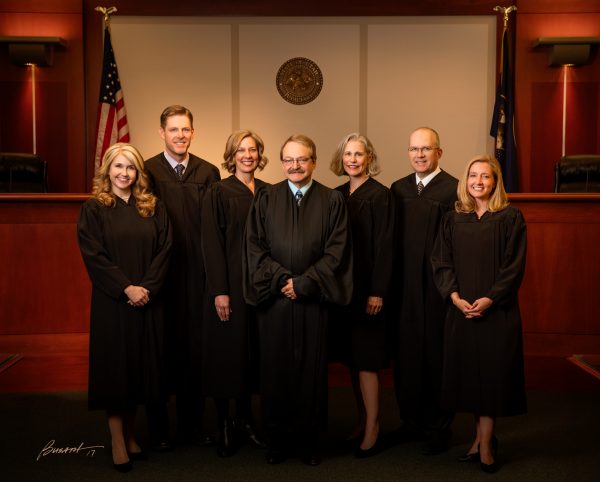





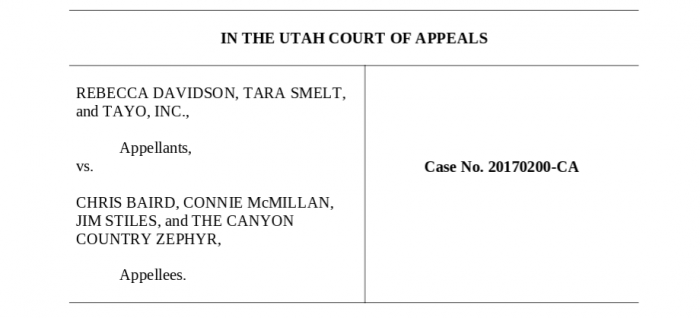
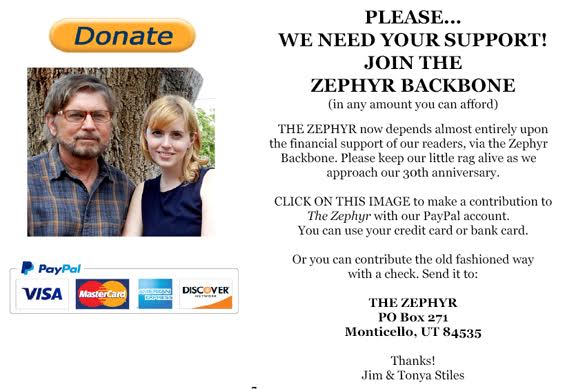






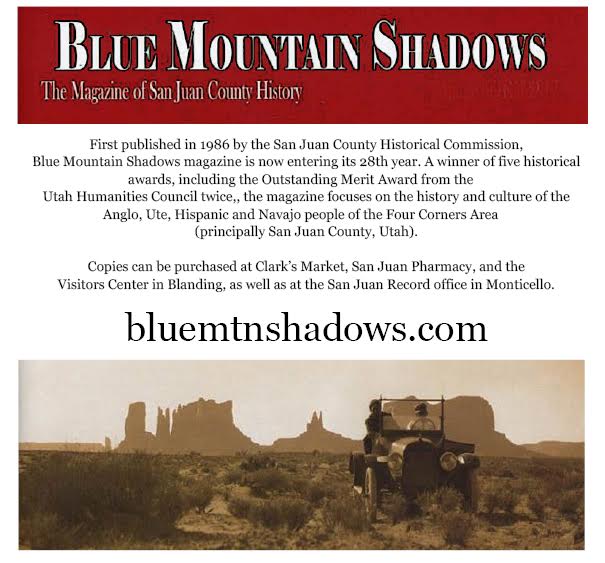
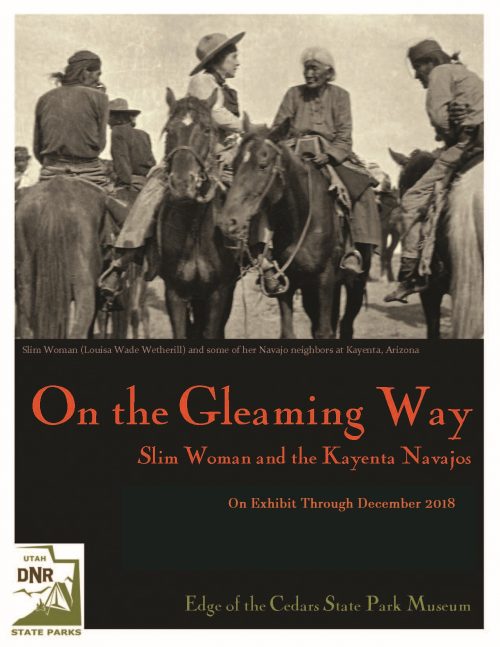


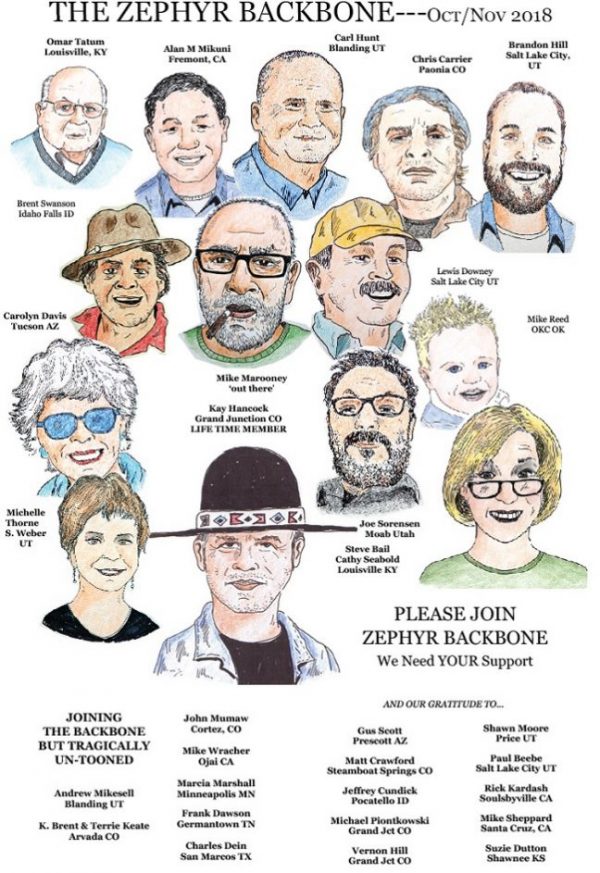
As far as I am concerned, I see this as a textbook case of a frivolous lawsuit.